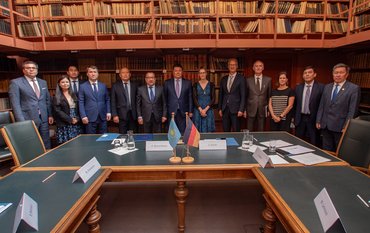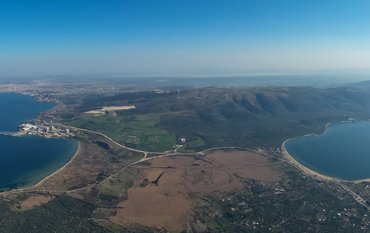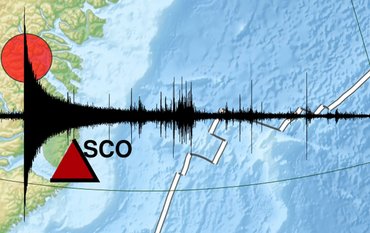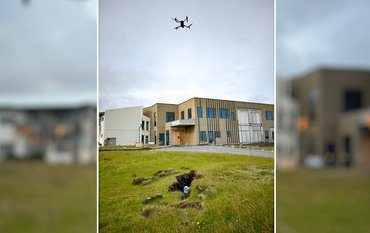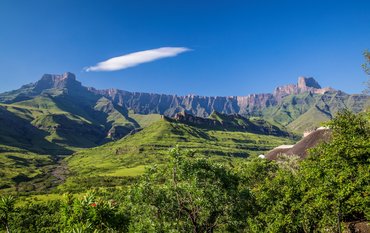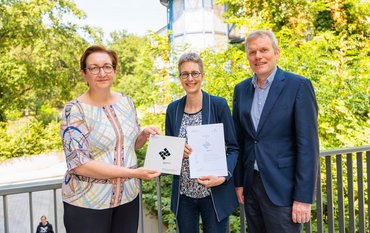Together with colleagues, GFZ scientist Christian Voigt, section Global Geomonitoring and Gravity Field, installed a new observatory for the long-term monitoring of changes in water, ice, and snow as well as alpine mountain building processes on Zugspitze. Central instrument is a so called superconducting gravimeter that until now performed its duty on the other side of the globe.
A gravimeter measures gravity. Its force depends on mass at a specific site: the more mass, the stronger the gravity. Since changes in the amount of water below ground lead to changes in mass, a gravimeter can serve for the observation of changes in groundwater as well as in snow and ice cover above ground.
This is what the superconducting gravimeter – an especially precise gravimeter - is about to do in the newly installed Zugspitze Geodynamic Observatory Germany (ZUGOG) at the highest point of the German Alps. Christian Voigt, station head: “By monitoring changes in mass, we can extrapolate on the dimension of thawing permafrost in the Alps or of the retreat of the Schneeferner, the northernmost glacier of the Alps”. Thus, the observatory serves for monitoring climate change.
ZUGOG owes its futuristic look to a 1960th design. In the first place it served as a laboratory of the Max Planck Society of Extraterrestrial Physics for the investigation of cosmic rays. The laboratory is particularly well suited for its new task: due to its shape and its position on top of the mountain it qualifies for measuring all hydrologic mass changes below itself.
From 1998 to 2017 the laboratory was installed as part of the South African Geodynamic Observatory Sutherland (SAGOS) where another gravimeter is still in service to monitor gravity changes in South Africa.
In the future, ZUGOG will serve for the validation of data of the GRACE Follow-On satellite mission that was launched in May 2018 to measure Earth’s gravity field globally. The ZUGOG data are also used by the Environmental Research Station Schneefernerhaus for data validation. In return, the GFZ benefits from the station’s sensor network and a scientific exchange. (ak)



![[Translate to English:] [Translate to English:] Abror Gafurov von dem Schriftzug "Welcome to Azerbaijan" und den UN und COP Logos](/fileadmin/_processed_/2/5/csm_2024_11_Baku_COP29_Abror_Gafurov_1042faec82.jpeg)



![[Translate to English:] Martin Herold standing in front of the library on the Telegrafenberg](/fileadmin/_processed_/c/d/csm_Martin_Herold_d385ee4dd9.jpeg)
![[Translate to English:] Many people are listening to a presentation in the GFZ lecture hall.](/fileadmin/_processed_/c/a/csm_1_Bild1_hell_b9c0e9f5ed.jpeg)





![[Translate to English:] Both scientists sitting on stools in front of a wall of books in the Telegrafenberg library](/fileadmin/_processed_/6/6/csm_Buiter_Castell_DORA_4_e87cb1ea18.jpeg)
![[Translate to English:] Gruppenbild mit 4 Personen](/fileadmin/_processed_/8/d/csm_20241017_GFZ-Emmerman-Medal-005_web_reinhardtundsommer_21a414fa4a.jpeg)






![[Translate to English:] Ice landscape with five red tents](/fileadmin/_processed_/8/9/csm_Zeltlager_auf_dem_Eis_Urheberin_Jenine_McCutcheon_5ced2d523b.jpeg)



